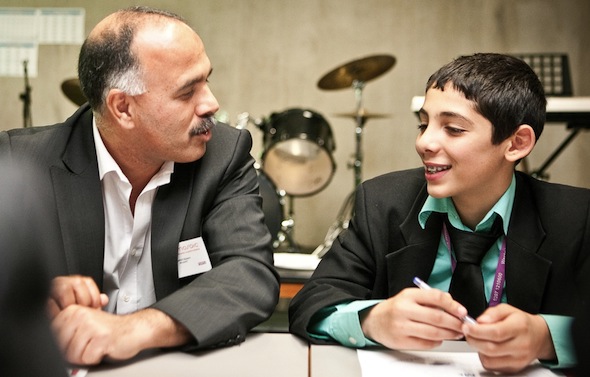
The question is, how?
Despite their best attempts, with the current economic climate, a growing number of young people in the UK and abroad face unemployment. In addition, in the last year we have seen the disenchantment of young people culminate in large scale events, both in the UK riots in the summer, and in the ongoing protests for regime change across the Middle East.
I work for Mosaic, a charitable initiative of HRH The Prince of Wales, creating opportunities for young people of every background. We aim to have a positive effect on confidence, employability and self efficacy. By showing young people what inspirational leadership looks like, introducing them to role models who they can relate to, and persuading them that they too can be leaders who make a positive impact on the people around them – we aim to turn frustration and inertia into action and responsibility.

We have found some key factors to encouraging young people to discover their leadership skills. First is the definition of what is successful and inspiring leadership. For many young people, they do not consider themselves leadership material because they are not famous enough or wealthy enough or old enough.
However, through examining the character traits of effective leaders, using real life examples, we identify that the skills of a good leader are those which can be trained and developed – they are not simply based on an individual’s position or celebrity or charisma but instead are focused on serving others and behaving responsibly and consistently. A good example is that of listening skills. Every leader needs to demonstrate that they can fully attend to a colleague’s concerns, reflecting back on what they have heard, and asking clarifying questions to help reach a solution. This is a skill which can be taught and honed amongst young people.

Second is the recognition of personal emotional resilience. It is critical to understand that all leaders face difficulties on a daily basis, and that the ability to navigate these with a positive outlook and bounce back from disappointments, brings strength rather than demonstrates failure. We ask young people to recall a time when they have felt particularly under pressure, and to consider how they endured this and who supported them. This has as much relevance for school aged students as it does for those in the work environment, and is certainly a skill that can be developed.
Third, and related to resilience, is the need for leaders to have a network in which they can share resources, continue learning and be open to feedback. The Mosaic International Summit, our international leadership development programme is a great example of this; by bringing together leaders from different backgrounds and perspectives, invaluable exchange of ideas takes place and also, many cross cultural stereotypes and fears are shattered. As one of our alumni said, “there is no source of inspiration greater than a person who has been in the same place you are, yet has surmounted the odds. “
* Alison Bradley is the international director at Mosaic, a charitable initiative of HRH The Prince of Wales. She oversees the leadership development programme, which aims to grow leadership ability in young people and equip them to be a positive part of their communities. Alison has previously worked in a number of organisations which support young people, in the UK and abroad.
